We Are
2BCured is a network of dedicated parents organizing and supporting translational research to find a cure for GRIN2B‑Related Neurodevelopmental Disorder. In partnership with leading scientists and medical professionals, we’re transforming scientific discoveries into real-world treatments—accelerating progress through gene, RNA, and molecular strategies. We actively support efforts across the entire translational pipeline—from early-stage discovery and disease modeling to clinical strategies like gene and RNA therapies—ensuring that promising science moves swiftly toward patients. Our goal is bold but clear: to make GRIN2B disorder not just manageable, but treatable at its root—giving affected individuals the chance to live healthier, more independent lives.
Meet Our Experts
Our team is strengthened by the expertise of leading medical professionals and world-class research institutions. Their specialized knowledge, clinical experience, and commitment to rare neurodevelopmental disorders are essential to driving scientific progress and advancing high-quality, impactful outcomes for the GRIN2B community.
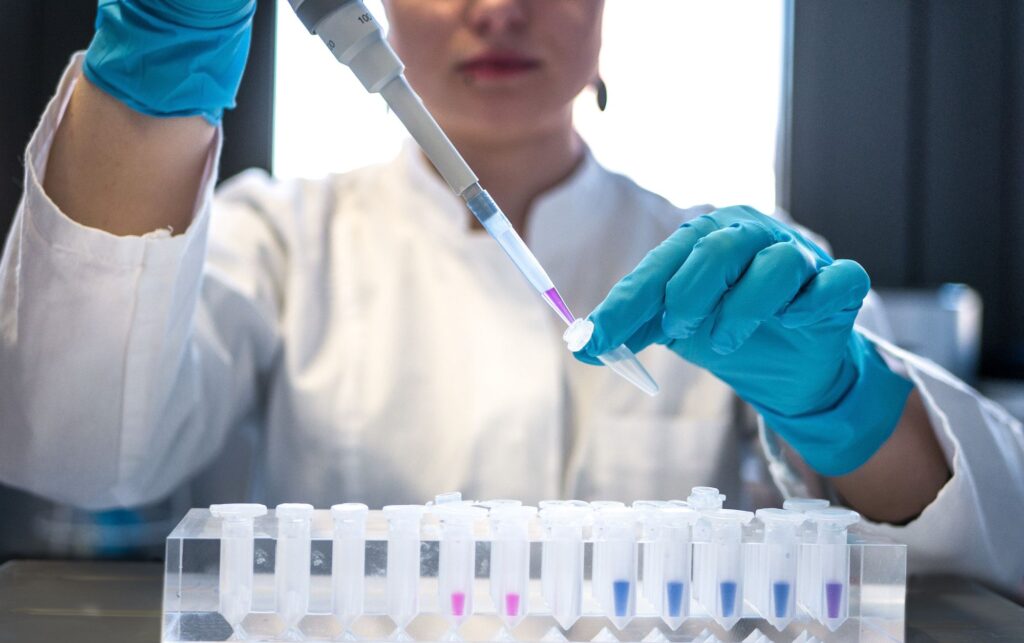

Dr. Shai Berlin
The Berlin Laboratory at the Technion — Israel Institute of Technology
Dr. Shai Berlin leads the Berlin Lab at the Technion — Israel Institute of Technology and specializes in the physiology and pathophysiology of NMDARs (N-methyl-D-aspartate receptors). With a Ph.D. in physiology and pharmacology from Tel Aviv University’s Faculty of Medicine and a postdoctoral fellowship at the University of California at Berkeley in Neurosciences, Dr. Berlin has extensive expertise studying NMDARs and developing innovative tools for investigating synaptic plasticity.
Since joining the Technion’s Neuroscience Department in 2016, Dr. Berlin has focused on understanding the implications of NMDARs in various diseases. His lab’s research involves advanced techniques such as electrophysiology, 2-photon and digital holography imaging, and high-throughput screening methods.
Dr. Berlin and his team investigate genetic mutations in NMDARs using diverse models, including Xenopus oocytes, cultured neurons, brain slices, and animal models.
Notably, Dr. Berlin’s group has made groundbreaking progress in identifying two exceptional GRIN2B mutations that result in an exceptional 1000-2000-fold reduction in glutamate affinity of the receptors. This discovery represents the most severe reduction in affinity ever reported for GRIN2B variants.Dr. Berlin’s cutting-edge research techniques and expertise contribute to our expanding understanding of NMDARs and their role in disease, laying the groundwork for potential therapeutic interventions.

Dr. Shani Stern
Shani Stern Laboratory at University of Haifa
Dr. Shani Stern, head of the Precision Disease Modeling Laboratory at the Neurobiology Department of The University of Haifa, is a renowned expert in creating disease models. Her laboratory is a world leader in developing 2D and 3D brain organoid models, enabling testing of drug and gene therapies tailored to each patient’s specific condition.In the context of GRIN2B Disorder, Dr. Stern’s research focuses on using RNA sequence analysis to identify the individual proteins and molecular pathways affected by GRIN2B pathogenic variants.
One of Dr. Stern’s notable contributions is the development of an AI algorithm capable of extracting biomarkers from patients’ blood samples. This breakthrough technology enables the identification of optimal drug treatments paving the way for personalized therapies that target different GRIN2B variants.
Dr. Stern and her team are driving advancements in precision medicine and offering new hope for the children affected by GRIN2B Disorder.
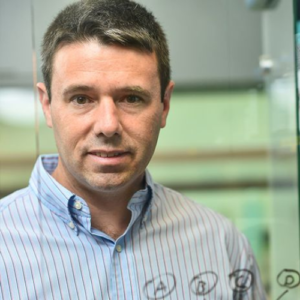
Dr. Avi Schroeder
The Schroeder Laboratory at the Technion —
Israel Institute of Technology
Dr. Avi Schroeder, a tenured Associate Professor of Chemical Engineering at the Technion — Israel Institute of Technology, is at the forefront of research through his leadership of the Laboratory for Targeted Drug Delivery and Personalized Medicine Technologies. With his extensive experience, including postdoctoral studies at the Massachusetts Institute of Technology and a joint PhD from the Hebrew and Ben Gurion Universities, Dr. Schroeder brings a wealth of expertise to his work.
Under Dr. Schroeder’s guidance, the research team will employ cutting-edge gene therapy systems using lipid nanoparticles to deliver the GRIN2B gene and/or RNA directly to affected neurons. This innovative approach focuses on correcting the root cause of the disease, offering patients the potential for long-term improvements and an enhanced quality of life.
Dr. Schroeder’s groundbreaking research is pushing the boundaries of medical science and paving the way for transformative treatments in the field.
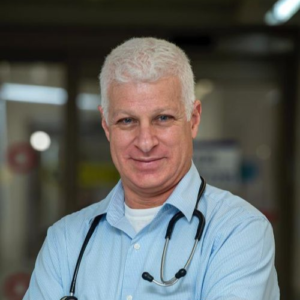
Dr. Ronen Spiegel
The Emek Medical Center – Center for Rare Diseases
The Emek Medical Center (EMC) is a renowned institution at the forefront of rare disease research, driving progress through clinical trials for drug treatments and gene therapy. Dr. Ronen Spiegel, an esteemed pediatrician and geneticist, leads the clinical aspects of the research as the head of the EMC Center for Rare Diseases.
Under Dr. Spiegel’s guidance, the center conducts clinical studies on both novel and approved drugs and researches , while also exploring the underlying molecular and biological mechanisms of these conditions. His dedication to the field has earned Dr. Spiegel honorary awards for his exceptional commitment to children with rare genetic diseases, including GRIN2B Disorder.

Dr. Tali Garin-Shkolnik
Rambam Health Care Campus
Dr. Tali Garin-Shkolnik, Senior Physician-Scientist at Rambam Health Care Campus, fosters collaborations and advances translational research in dermatology and rare diseases. She connects with families, researchers, and physicians in GRIN2B research around the world. Dr. Shkolnik’s expertise includes medical innovation, advanced research methods, and genetic therapies, seeking effective treatments and cures.
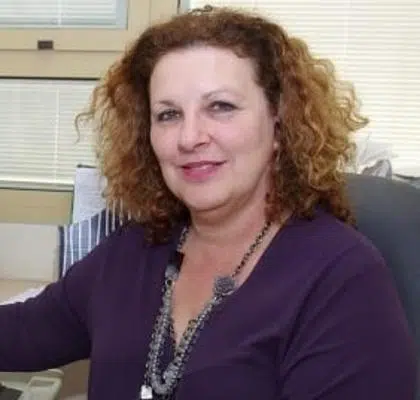
Prof. Bruria Gidoni-Ben-Zeev
Edmond and Lily Safra Children’s Hospital | Sheba Medical Center
Dr. Gidoni-Ben-Zeev is the Head of the Pediatric Neurology Department and a leading expert in Pediatric Neurology, known nationally and internationally for her many clinical and research achievements in the field. She also serves as a Professor at the Sackler School of Medicine, Tel-Aviv University. Dr. Gidoni-Ben-Zeev is deeply committed to GRIN2B-related disorder, taking part in leading conferences and is actively engaged in promoting the development of clinical trials to improve the lives of affected children.
Sheba Medical Center is a top-ten ranked hospital in the world six years in a row. Sheba’s Pediatric Neurology Institute receives 2,200 outpatient visits annually. The institute treats a variety of neurologic problems such as autism, neuromuscular disorders, epilepsy, developmental disorders, and neurometabolic problems.
The Center treats GRIN patients and is available to support 2BCured in clinical trials for GRIN2B treatments.
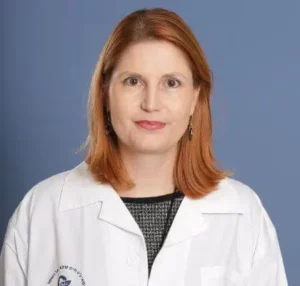
Gali Heimer, MD PhD.
Pediatric Neurology Department at Sheba Medical Center
As Senior Pediatric Neurologist Dr. Gali Heimer specializes in treating children with complex neurogenetic syndromes. She assists in diagnosing patients with undetermined genetic conditions and leads groundbreaking clinical research focused on targeted therapies, including genetic treatments for various syndromes. In addition, she conducts translational research that has led to the discovery of novel genes and supports the development of genetic therapies. Beyond her clinical and research work, Dr. Heimer serves as a peer reviewer for scientific journals, and advises international companies in the development of innovative therapies for neurogenetic disorders. She is highly devoted to research and finding therapies to NDD including GRIN2B.
Collaborators & Partners
- Itay&Beyond
- Simon’s Searchlight
- Vatine Lab

Itay&Beyond has developed a platform for creating a human brain on a chip, grown from human urine cells. This breakthrough aims to overcome the glass ceiling that has blocked over 99% of drugs developed for patients with neuro-psychiatric disorders, including Autism. The company was able to create 3D human brain tissue (organoids) from urine-derived stem cells, placing them on electronic chips, and connecting them to computers. These mini-brains not only mimic real brain function but can respond to stimuli and distinguish between neurotypical and disordered brain activity with 90% accuracy. This platform enables early-stage drug testing directly on human brain models, offering a faster, more accurate path to developing effective treatments.
Learn More

Simon’s Searchlight’s mission is to shed light on rare genetic neurodevelopmental disorders by collecting high-quality, standardized natural history data and building strong partnerships between researchers, industry and families.

Dr. Gad Vatine of the Department of Physiology and Cell Biology is collaborating with 2BCured on IPSC, brain organoids and studying the role of the blood-brain-barrier (BBB) in rare diseases.

